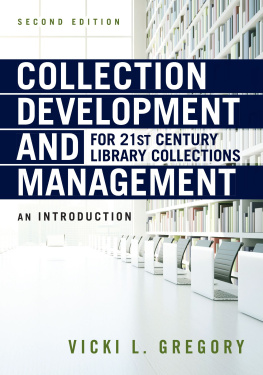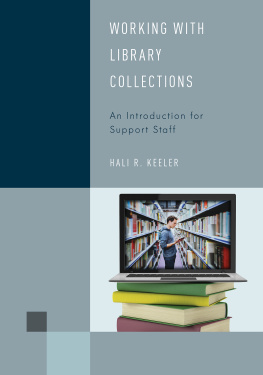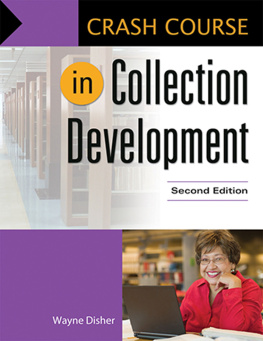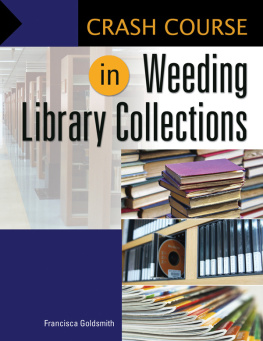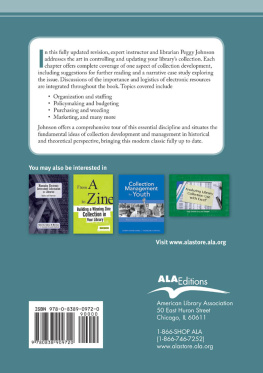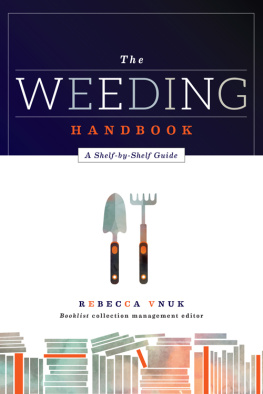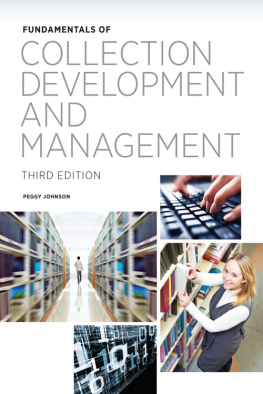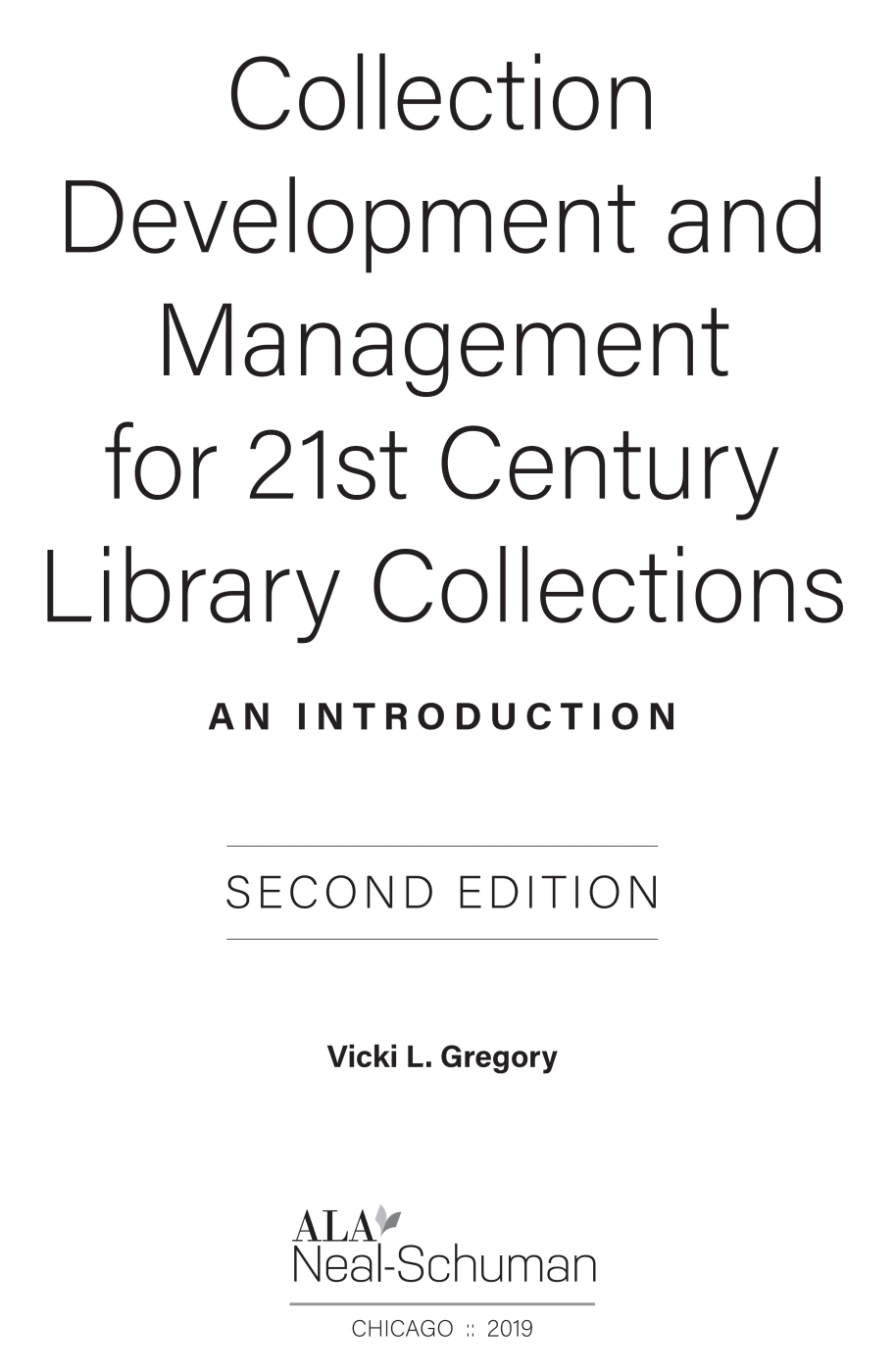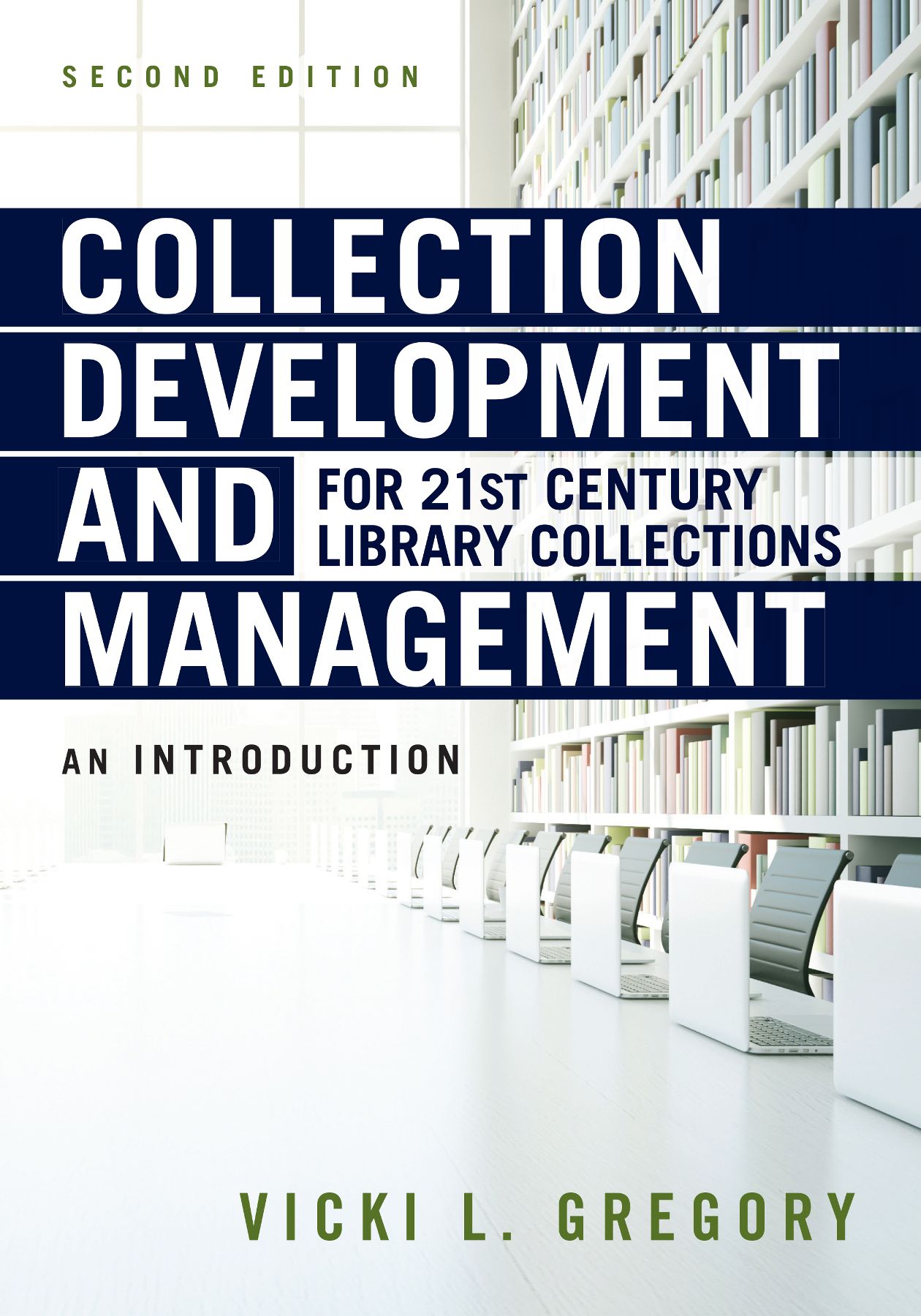
ALA Neal-Schuman purchases fund advocacy, awareness, and accreditation programs for library professionals worldwide.
VICKI L. GREGORY has both an MLS degree and an MA in history from the University of Alabama, and a PhD in communication, information, and library studies from Rutgers, The State University of New Jersey. She is currently a professor in the School of Information at the University of South Florida, where she teaches collection development, digital librarianship, and library administration. She was previously head of Systems and Operations (which included collection development, acquisitions, cataloging, serials, and computer technology) at Auburn University at Montgomery, Montgomery, Alabama. She has written five previous books and numerous journal articles, and she has delivered conference presentations both nationally and internationally. This is her fourth year on the ALA RUSA Notable Books Council.
2019 by the American Library Association
Extensive effort has gone into ensuring the reliability of the information in this book; however, the publisher makes no warranty, express or implied, with respect to the material contained herein.
ISBNs
978-0-8389-1712-1 (paper)
978-0-8389-1761-9 (PDF)
978-0-8389-1760-2 (ePub)
978-0-8389-1762-6 (Kindle)
Library of Congress Cataloging-in-Publication Data
Names: Gregory, Vicki L., 1950 author. | American Library Association, issuing body.
Title: Collection development and management for 21st century library collections : an introduction / Vicki L. Gregory.
Other titles: Collection development and management for twenty-first century library collections
Description: Second edition. | Chicago : ALA Neal-Schuman, an imprint of the American Library Association, 2019. | Includes bibliographical references and index.
Identifiers: LCCN 2018010395 | ISBN 9780838917121 (print ; alk. paper) | ISBN 9780838917602 (epub) | ISBN 9780838917619 (pdf) | ISBN 9780838917626 (kindle)
Subjects: LCSH: Collection management (Libraries) | Collection management (Libraries)United States. | Collection development (Libraries) | Collection development (Libraries)United States.
Classification: LCC Z687 .G68 2018 | DDC 025.2/1dc23
LC record available at https://lccn.loc.gov/2018010395
Cover image peshkova.
CONTENTS
T his second edition of Collection Development and Management for 21st Century Library Collections: An Introduction describes how librarians select, acquire, and maintain resources in all formats.
Unlike previous textbooks in this area, the approach used here is not strictly based on formats per se, but rather on the processes that librarians need to use in evaluating, gathering, maintaining, and preserving materials. In other words, there are no separate chapters dedicated to books, serials, and electronic resources; instead, each conceptual chapter covers multiple formats. As has always been the case, but especially as witnessed over the last forty years spanning my professional career, the formats of the materials collected and used by libraries have changed, but the overall processes used to select and evaluate those materials have tended to remain the same. In the pages that follow, I will describe the synergy and drive behind planning, developing, licensing, acquiring, and managing collections that are both physical and virtual, used in-house and remotely, and constantly changing.
Although collection development, the acquisitions process, and collection maintenance issues are universal concerns for all types of libraries, differences in emphasis on the various elements of collection development and maintenance become quickly apparent in different library settings such as public libraries, academic libraries, and school library media centers. Issues of ethics, intellectual freedom, copyright, and licensing are impacting all areas of collection development like never before. Therefore, while it is important to take an overarching view of collection development and management processes, differences engendered by the type of library will be brought out where appropriate.
The primary audience for this book will naturally be students in graduate programs of library and information science. However, librarians changing professional assignments into collection development and maintenance or those needing to catch up on, for example, electronic materials should also find this book useful.
In many schools of library and information science, collection development is included within a broader picture of collection management or maintenance and is often folded into those courses. Many classes will actually emphasize, in such cases, not collection development itself but collection management, sometimes with only a week or a single instructional unit given over to acquisitions. Thus, it is important to make clear distinctions among these three major elements:
- Collection management may be best defined as the process of information-gathering, communication, coordination, policy formulation, evaluation, and planning that results in decisions about the acquisition, retention, and provision of access to information sources in support of the intellectual needs of a given library community.
- Collection development is the subpart of collection management that has primarily to do with decisions that will result in the acquisition of materials.
- Acquisition is the process of actually securing materials for the librarys collection, whether by purchase, as gifts, or through loan or exchange programs.
THE ORGANIZATION OF THIS BOOK
Collection Development and Management for 21st Century Library Collections begins with a comprehensive overview of the field, then moves into individual chapters covering each step of the collection life cycle, and ends with a chapter looking at the future.
takes a look at how new elements are influencing library collections today: it has new sections on e-books and libraries, self-publishing, and additional materials on open access, Web 2.0, the long tail, and globalization. Each of these elements affects how and what the library owns, leases, or uses.
looks at needs assessment from a collection development standpoint, and at marketing the collection. A needs assessment is similar to market research, but in this case with a library emphasis. Marketing plans are discussed and examples of marketing activities are drawn from different types of libraries.
concerns the purpose and component parts of a good collection development policy.
covers the selection of library resources, and provides an overview of sources for reviews, selection criteria, and variables in the process among different types of libraries. New online sources for selection have been added, and older ones have been updated.
concerns all aspects of the acquisition of print, electronic (digital databases and e-books), and audiovisual resources, along with a discussion of gifts to libraries and the exchange programs in which some libraries participate. Exchange programs can be local, national, or international.
discusses the budget and fiscal management of collection development and acquisitions departments. A short introduction to bookkeeping is included, with most of the terminology that a new acquisitions librarian will need to know.
Next page
